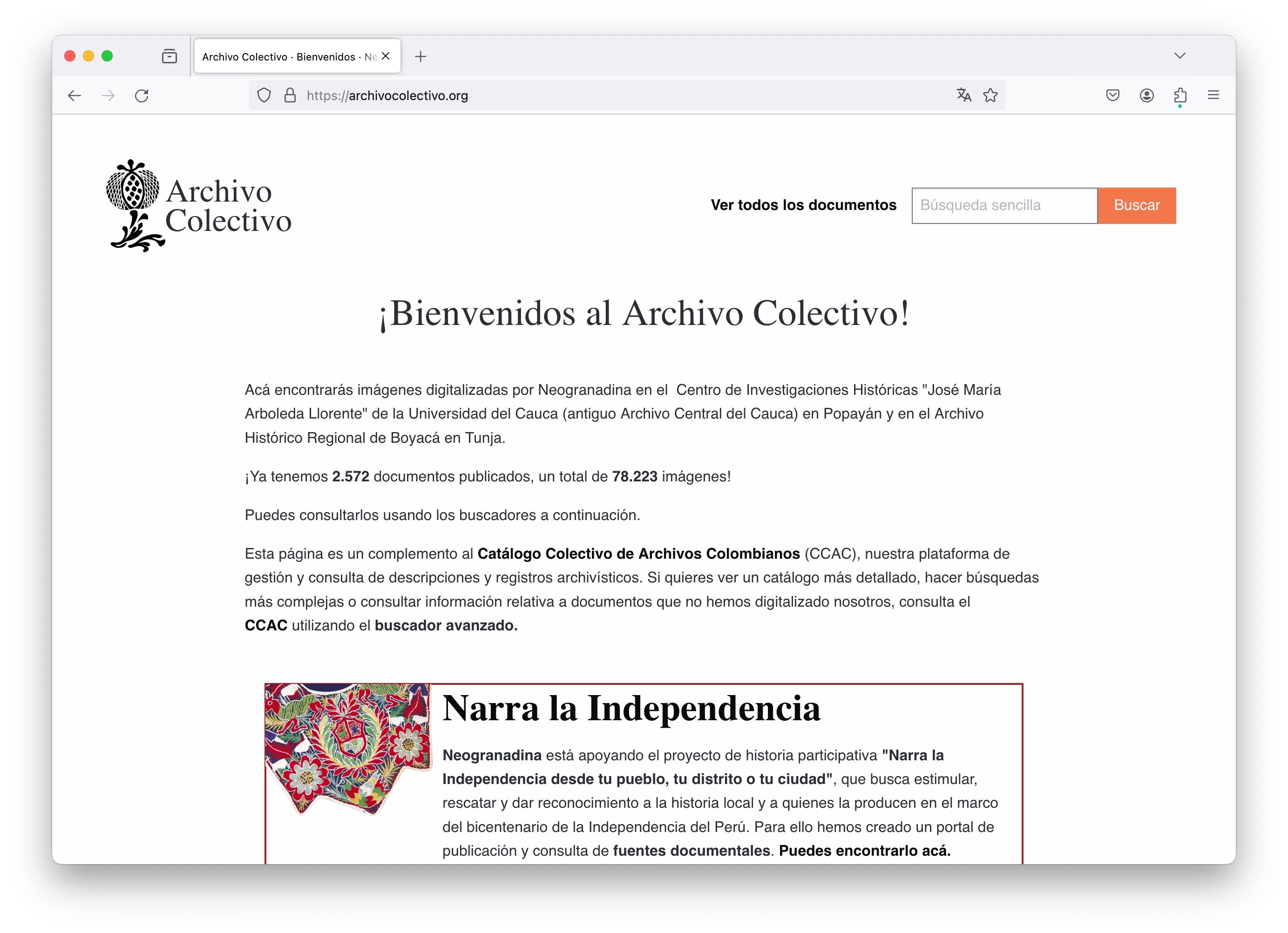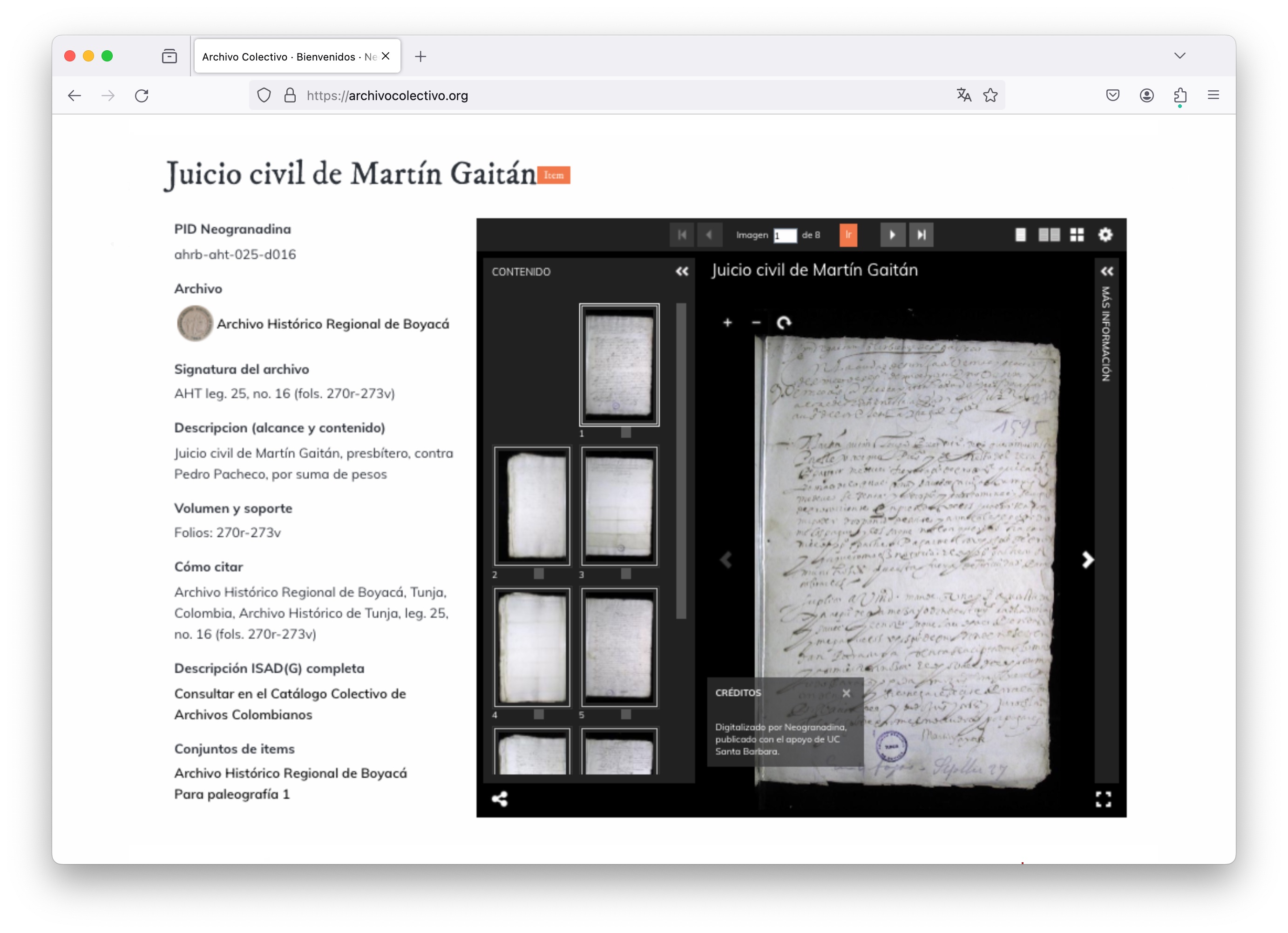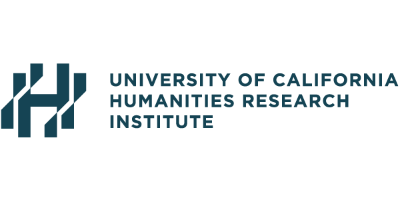Out first platform for the publication of digitized images


The Archivo Colectivo (“Collective Archive”) was our first platform for the publication of digitized materials. It was developed in the framework of the “Digital Archive of Colonial Latin America” UC Humanities Research Institute project, with the support of the University of California, Santa Barbara. From 2020 to 2023, Neogranadina used this platform to publish digitized images from the Centro de Investigaciones Históricas “José María Arboleda Llorente” of the Universidad del Cauca in Popayán and the Archivo Histórico Regional de Boyacá in Tunja. The Collective Archive worked as a complement to the Collective Catalog of Colombian Archives, a parallel platform which we used to publish archival descriptions and inventories.
We retired the Collective Archive in 2023, and transfered all of its contents, along with those of the Collective Catalog of Colombian Archives to the ABC (Archive, Library, Catalog in its Spanish initials), our new, consolidated platform for the publication of images of digitised archival and library materials and their associated metadata.

This project was supported in part by the University of California Office of the President MRPI funding MR-15-328710.